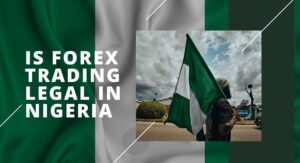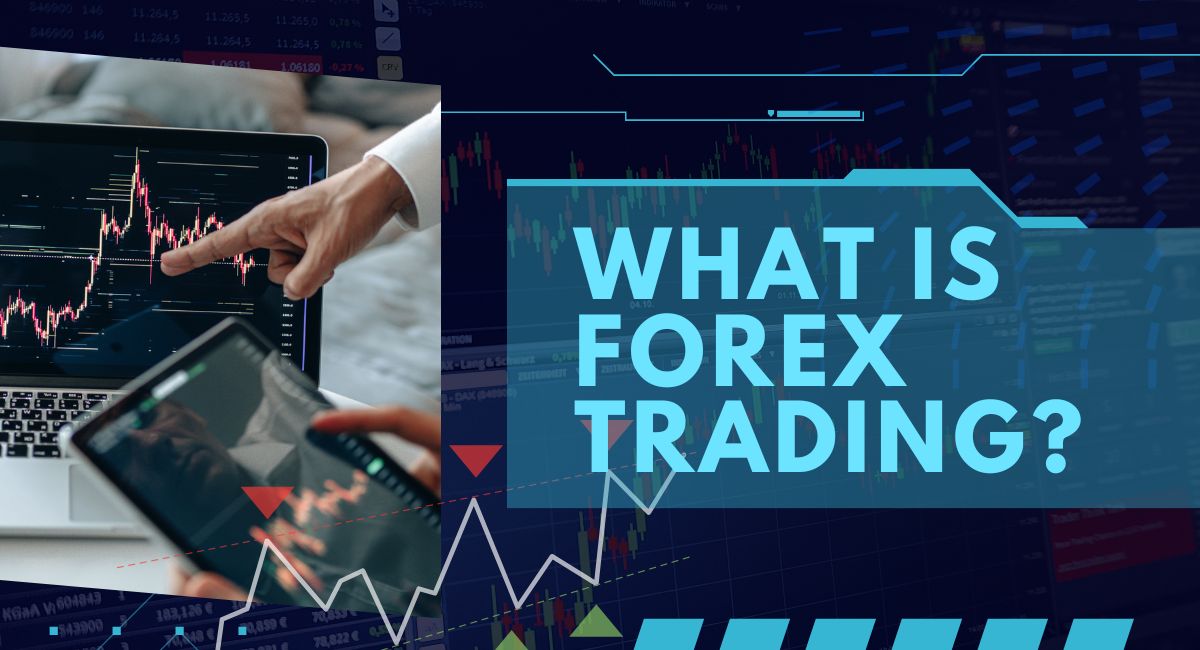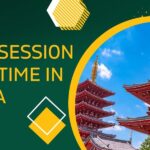You are about to embark on a wild journey into the world of forex trading. But before you rev up that engine and speed off into the sunset, it’s important that you understand the lay of the land. And by “lay of the land,” I mean the laws and regulations surrounding forex trading in Nigeria.
Think of it like this: You wouldn’t drive a car without knowing the rules of the road, right? Well, forex trading is no different. You need to know the rules of the game if you want to succeed. So, we find ourselves here. A question at hand: Is forex trading legal in Nigeria?
Is Forex Trading Legal in Nigeria?

Forex trading is legal in Nigeria, however, it is not overseen by any government agency. As a result, traders in the country should be aware that when conducting forex transactions with either Nigerian or foreign brokers operating in the country, they may not have the same level of security as traders in other countries.
The SEC, Nigeria’s regulatory body for securities and exchange, has advised potential investors of the potential dangers associated with online forex trading and has encouraged them to exercise caution when investing their funds. The SEC further suggests that traders choose to work with licensed forex brokers and comply with all industry regulations and guidelines.
Forex trading is legal in most countries around the world. This is because most countries have government agencies that oversee and regulate the forex market. These agencies ensure that the market operates in a transparent and fair manner, protecting traders and investors from fraudulent or unethical practices.
Best Regulated Forex Brokers in Nigeria
Now that we’ve laid to rest doubts about whether forex trading is legal in Nigeria, let’s go to the other most important bit that will ensure your safety when you’re trading. You must only trade with forex brokers that are fully regulated.
Forex brokers are regulated by financial organizations to make sure that they are following the rules and providing a fair and safe service for their clients. The regulations vary from country to country and can be broken down into different tiers or levels.
Here are the three main tiers of regulations for forex brokers:
- Tier 1: This is the highest level of regulation and is usually provided by organizations such as the Financial Conduct Authority (FCA) in the UK or the Australian Securities and Investments Commission (ASIC). Brokers in this tier are required to meet strict standards and are regularly audited to make sure they are following the rules. Exness and Pepperstone are good examples of brokers that are regulated in tier 1 countries.
- Tier 2: This is the next level of regulation and is provided by organizations such as the Cyprus Securities and Exchange Commission (CySEC) or the National Futures Association (NFA) in the US. The standards are still high, but not as strict as Tier 1.
- Tier 3: This is the lowest level of regulation and is provided by organizations in countries with less strict regulations. The standards for brokers in this tier may not be as high, and there may not be as much protection for clients.
In order to ensure that they are following the rules in each country, forex brokers may hold regulatory licenses from different jurisdictions.
For instance, in a country like Kenya, the Capital Markets Authority (CMA) has capped the maximum leverage a broker can offer to be 1:400 this is different from what the FSCA of South Africa allows. To operate legally in both countries, a broker must get licenses from the 2 jurisdictions.
Due to differences in laws and regulations, a forex broker may have a license from the Financial Conduct Authority (FCA) in the UK, the Australian Securities and Investments Commission (ASIC) in Australia, and the Cyprus Securities and Exchange Commission (CySEC) in Cyprus. This means that the broker is regulated by three different financial organizations, each with its own set of rules and regulations.
Now, even though a broker may hold a Tier 1 license from a reputable financial organization, it doesn’t necessarily mean that all of their clients will have the same level of protection. The level of regulation that a trader falls under depends on their country of residence.
For example, let’s say a trader from the UK wants to trade with a forex broker that holds a Tier 1 license from the FCA. This trader will fall under the regulations set by the FCA and will have the highest level of protection.
However, if a trader from a country with less strict regulations, such as a Tier 3 jurisdiction, wants to trade with the same broker, they will fall under the regulations set by the financial organization in their country. This means that they may not have the same level of protection as the trader from the UK.
7 Best Regulated Forex Brokers in Nigeria
Here’s a list of the 7 best regulated forex brokers in Nigeria:
- Exness
- HF Markets
- LiteFinance
- Pepperstone Markets
- FBS
- JustMarkets
- RoboForex
At 440 Forex, we feel that the goverment needs to act with haste and set in place regulations to safeguard the forex traders in Nigeria. They should borrow regulations from other African countries including South Africa and Kenya, which have local regulations to ensure the safety of their citiziens.
What is Forex Trading?

Now that you know what Forex trading is not illegal in Nigeria, let’s backtrack a little and look at what it is and whether it’s the right investment vehicle for you.
The Forex market is the largest and most liquid financial market in the world, turning over 6.6 trillion USD per day. Participants include banks, central banks, currency speculators, corporations, hedge funds, and other financial institutions. They are connected over an electronic network which allows them to convert the currencies of most countries of the world.
Foreign currencies are simultaneously bought and sold across local and global markets and traders’ investments increase or decrease in value based upon currency movements. The Forex market responds to real time events and news, creating ongoing volatility and trading opportunities.
The Forex market only began to emerge in 1978, when worldwide currencies were allowed to ‘float’ according to supply and demand. Up until 1995 Forex trading was only available to banks and large multinational corporations. Today thanks to the proliferation of internet-based communication technologies, this highly profitable market is open to everyone. The Forex trading markets growth has been unprecedented and continues to be unequalled by any other trading market.
Benefits of trading the Forex market:
- Unlike the stock market this market is always open (24 hours per day, 5 days per week)
- It is an extremely liquid market, with access to most currencies
- Volatile markets offer constant trading opportunities (you can profit in rising or falling markets)
- Leveraged trading with low margin requirements (up to 200 to 1 leverage on your capital)
- Work from anywhere, anytime
- Open for investors of all levels
- Zero cost trading, no brokerage or commission fees
But what exactly is it? And is it legal?
Avoid Common Forex Trading Scams
Trade with Regulated Forex Brokers to Remain Legal
Forex trading is simple. It is the process of trading currency to make money by buying at low prices and selling at higher prices than what you bought it for thus creating a profit. The high point is that you don’t actually have to buy the currency like with the stock market and other programs you simply trade it.
Everyone wants to see a profit and this is one of the biggest reasons we pursue forex trading. For example if you buy currency at one price and sell it at a higher price then you get back more than what you paid thus resulting in a profit.
There are many different forms of currency that are commonly traded in the forex market. These types of currency include:
- United States Dollar – USD – Also known as Buck
- Euro members Euro -EUR – Also known as Fiber
- Japanese Yen – JPY –
- British Pound – GBP – Also known as Cable
- Switzerland Franc – CHF -Also known as Swissy
- Canada Dollar – CAD – Also known as Loonie
- Australia Dollar -AUD – Also known as Aussie
- New Zealand Dollar – NZD – Also known as Kiwi
These are considered major currencies and are generally the most popular ones traded although there are minor ones as well.
Although the currency market is open nonstop from Sunday evening until Friday afternoon it is advised that you trade at times based on the local time for that currency. The reason for this is that if you trade at a time when that market is sleeping it will take a little longer to see any results.
There are always risks involved with any money making process. Forex trading is no different. The most important thing to remember is to be logical about it. Start out small and remember that the more you put up the more you stand to lose.
Keep in mind that forex trading is not a way of making money fast. It is important to start out slow and to be sure that you understand the process of what you are doing.




